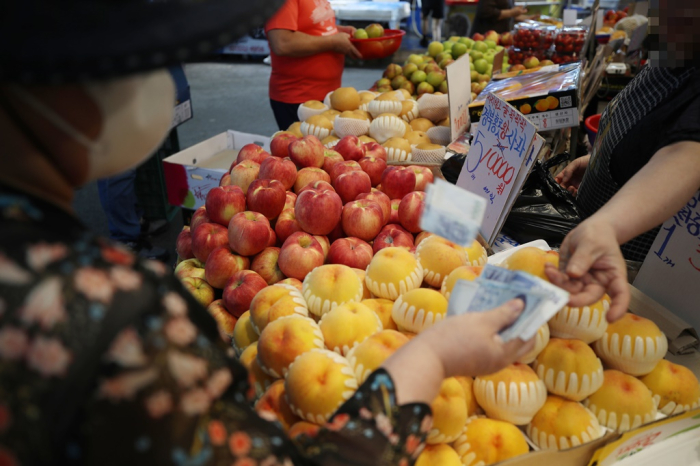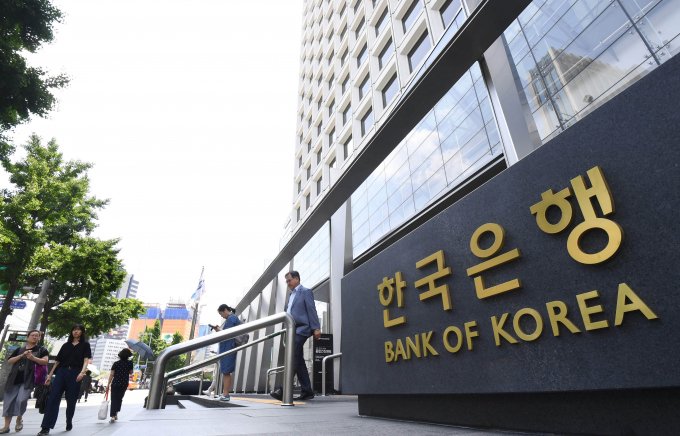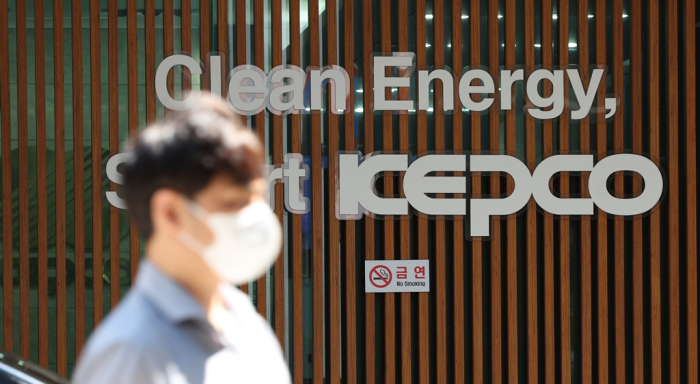Economy
Korea’s food prices highest among OECD nations; utility bills at bottom
The government’s tight grip on prices may be unsustainable for future generations, analysts say
By Jun 18, 2024 (Gmt+09:00)
2
Min read
Most Read
LG Chem to sell water filter business to Glenwood PE for $692 million


KT&G eyes overseas M&A after rejecting activist fund's offer


Kyobo Life poised to buy Japan’s SBI Group-owned savings bank


StockX in merger talks with Naver’s online reseller Kream


Meritz backs half of ex-manager’s $210 mn hedge fund



South Korea’s food prices were found to be the highest among the Organization for Economic Cooperation and Development (OECD) countries last year, while its utility bills and public fares were among the lowest, a Bank of Korea report showed on Tuesday.
According to a research note by the central bank, Korea’s overall consumer prices, in consideration of the country’s income levels, were on par with the OECD average in 2023.
However, the prices of agricultural products and fresh food were 56% higher than the OECD average. Clothing and shoes were 61% more expensive, while housing costs were 23% higher.
Specifically, prices of apples, pork, cooking oil and T-shirts, golf course use fees and car rental costs ranked top among the rich countres' club.
Apple prices, in particular, were three times higher than the OECD average.
UTILITY, PUBLIC FARES AT BOTTOM
By contrast, Korea’s electricity, gas and water bills were found to be 36% lower than the OECD average. Public rates, including public transportation fares, were 27% less, according to the BOK report.

City gas rates were in the bottom 30-40%, while electricity rates were in the bottom 20%.
In case of agricultural products, limited supplies were cited as a factor behind the higher prices.
Korea imported only a fifth of its fruit and vegetable needs last year. The percentage compares with the 40-70% range for the US and Europe.
In some cases, fruit and vegetable imports have been blocked to protect the domestic agricultural industry.
GOVERNMENT’S TIGHT GRIP ON PRICES
Industry officials said expensive food prices and dirt-cheap utility and public rates were due to heavy government meddling.

Price hikes were not limited to Korea. Nevertheless, the rate of hikes was steeper after manufacturers and food producers froze their prices over the past year in line with the government's policy efforts to keep inflation under control.
Under tight government supervision, Korea Electric Power Corp. (KEPCO), the state-run utility firm, has barely raised electricity prices for years, keeping energy rates below production costs.
UNSUSTAINABLE
Analysts said Korea’s distorted price structure is unsustainable and, if continued, would impose a heavy economic burden on future generations.
The BOK said that if Korea's food and clothing prices were lowered to the OECD average level, Korean households’ consumption power would rise by 7%.
Bank of Korea Governor Rhee Chang-yong recently said: “Higher agricultural and other food prices cannot be addressed through monetary or fiscal policy measures. The time has come for Korea to continue the current policy to protect domestic producers or find an alternative, such as leaving the door for imports wide open.”
Write to Jin-gyu Kang at josep@hankyung.com
In-Soo Nam edited this article.
More to Read
-
 EconomyS.Korea’s inflation slows to 10-month low amid tight policy
EconomyS.Korea’s inflation slows to 10-month low amid tight policyJun 04, 2024 (Gmt+09:00)
2 Min read -
 EconomyIn Korean food prices, everything’s up: Now it’s dried seaweed's turn
EconomyIn Korean food prices, everything’s up: Now it’s dried seaweed's turnApr 18, 2024 (Gmt+09:00)
3 Min read -
 EconomyKorea’s headline inflation dips below 3% in April but erratic
EconomyKorea’s headline inflation dips below 3% in April but erraticMay 02, 2024 (Gmt+09:00)
3 Min read -

Comment 0
LOG IN


